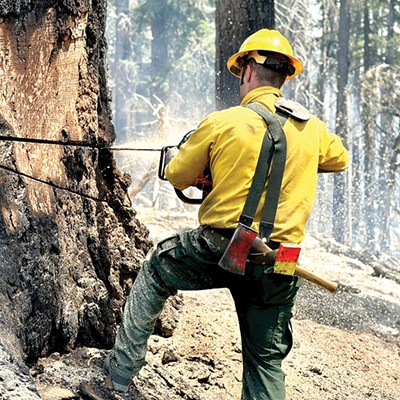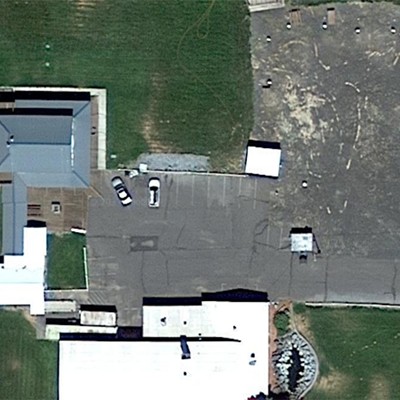The Bend City Council considered priorities for the next two years over two days of roundtable meetings January 23-24. The City sets priorities every two years once new city councilors are sworn in. The goals are informed by a community survey the City conducted in December, garnering 400 responses through phone calls and statistically significant with a margin of error of ± 4.9% as well as an online opt-in survey of over 1,200 self-selected respondents.
Most people rated their overall quality of life in Bend as either excellent or good, though that metric declined over the past several years. About 70% responded they had an excellent or good quality of life in Bend in 2022, down 18 points from 2020. This is consistent with statewide trends that increasingly show increasing dissatisfaction among residents — only 24% of Oregonians said the state is heading in the right direction.
Homelessness and housing affordability were the leading issues, according to Bendites, with 36% saying homelessness was their top priority, and 25% saying housing affordability. Transportation issues, the leading concern of Bendites in 2020, was the third-highest priority for people in the most recent survey. Inflation, overdevelopment and overpopulation followed.
Using this information as a guide, Bend City Councilors ranked policies they’d want to pursue to respond to each issue. The City Council will fine-tune these priorities in work sessions over the next month.

City Council Goals:
Affordable Housing and sustainable development: Meeting housing needs of the community
1. Develop specific goals for affordable housing and emergency shelter (under 30% Area Median Income and increased shelter beds for veterans and kids).
2. Prioritize investments to spur all types of housing in the Bend Central District (BCD).
3. Surplus and convey number of city parcels for affordable housing.
4. Support shelter optimization efforts and work with coordinated houselessness response office and Deschutes County – clarify roles and responsibilities.
5. Explore housing bond/revenue options.
6. Explore middle income policy incentives and implementation.
7. Increase access and frequency of timely data bout rental conditions for decision-making.
Affordable housing and sustainable development: Plan for anticipated growth
1. Develop Climate-Friendly and Equitable Communities work plan that optimizes the foundational land use and infrastructure plan needed to accommodate Bend’s growth.
2. Complete housing needs analysis.
3. Revisit greenhouse gas reductions and City’s Climate Action Plan.
4. Evaluate efficient use of land within the UGB.
5. Complete economic needs analysis.
6. Evaluate integrating on Urban Reserve program in coordination with County.
7. Align land uses with infrastructure plans.
Affordable housing and Sustainable Development: Economic Development
1. Issue and a Request for Proposals to engage master developers for City-owned land at Juniper Ridge, with a focus on industrial land and possible housing options.
2. Convene partners to explore solutions to address childcare and workforce development.
3. Determine funding for air traffic control tower and future economic development options for airport.
Transportation and Infrastructure
1. Council discussions on transportation system vision, funding and priorities. Improved safety for all.
2. Evaluate a Transportation Utility Fee and explore other funding sources as identified in the Transportation System Plan for operations and programs.
3. Continued discussion with COIC and support their efforts in identifying and securing long term sustainable transit funding.
4. Incentivize conservation to reduce water use for the community.
5. Work with the community for ongoing funding of local residential street safety program and prioritize the project equitably.
6. Evaluate feasibility of in conduit hydropower.
7. Increase education, outreach strategy to inform the community on infrastructure projects.
Public Safety
1. Fully staff necessary public safety positions for community engagement and preparedness, DUI and traffic enforcement as well as public safety overall.
2. Forge and evaluate additional partnerships for alternative responses. Right response for right situation.
3. Evaluate automated traffic enforcement.
4. Integrate the chief’s advisory committee recommendations.
5. Council discussions on advancing gun safety and state enforcement.
6. Support tech and intelligence improvements.
7. Continuity of operations plan and hazard mitigation plan in alignment with the state.
Accessible and effective government: Community engagement, advisory bodies and neighborhoods, council capacity, city facilities
1. Create a community liaison program focused on whole community and bilingual communication and engagement (with dedicated staff).
2. Develop new and innovative engagement tools — pilot programs to see what works.
3. Evaluate and assign goals for advisory bodies in alignment with council goals.
4. Review council compensation.
5. Increase council support staff (with dedicated staff).
6. Begin community engagement for new city hall to inform programming and design and explore public private partnership opportunities for city hall.
7. Meet with neighborhood associations in a quarterly roundtable format.
8. Juniper Ridge Public Works Campus.
Accessible and Effective Government: Equity and Process Efficiency
1. Improve permitting process and review times.
2. Define, develop and implement an equity framework.
3. Update City contracting and employment opportunities to incentivize higher wages and opportunities for black, indigenous and people of color and woman-owned businesses.
4. Implement an asset management strategy that supports decision-making for infrastructure.
5. Define, develop and implement a process and resources for community members to report acts of discrimination.
6. Streamline right-of-way code to more clearly identify roles and responsibilities with franchises
























